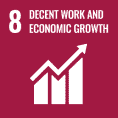Now, is always the most difficult time to invest. Sustained zero to negative interest rates have resulted in microscopic returns on cash and bonds. As banks scale back their role in the bond market, shrinking liquidity brings more risk. Though both the S&P 500 Dividend Aristocrats and S&P Europe 350 Dividend Aristocrats Indices have risen over 17% per year for the past 3 years, how long can this remarkable rise in stock prices last? As the old Wall Street saying goes, “No tree grows to heaven.” Discounted invoices provide an alternative to traditional asset classes. They offer attractive, risk-adjusted returns with low correlation to the market. (See our white paper: Receivables Finance in Emerging Markets.)
How Invoice Discounting Works
Any business transaction that does not involve immediate payment results in invoices or receivables that a supplier must carry until the buyer pays. And the smaller the supplier, the less leverage they have to demand better terms. With invoice discounting, invoices become financeable assets. A third party financial agent, known as a factor, purchases invoices at a discount and advances funds to the supplier immediately. The invoices are held for 30, 60, 90 or 120 days and the full amount of the invoice is collected from the buyer when it comes due.
- The supplier receives immediate payment, less the discount, so they can buy more materials and hire more people to grow their business.
- The buyer has a more reliable supply of goods and services.
- The factor collects on the full amount of the invoice, making a predictable profit on a short-term investment.
These assets have demonstrated low default rates (even during the worst financial crisis since 1929) and low volatility in the funds that have invested in them. (See Receivables Finance in Emerging Markets.)
The Potential for Growth in Emerging Markets
Invoice discounting, also known as trade receivables financing, is large and growing with a current market value of $3 trillion and a 5-year compound annual growth rate of 14.8%, according to Factors Chain International. Yet, most of that activity is concentrated in developed markets and between large buyers and large suppliers. Most commercial banks are not interested in expanding their product offering in smaller markets–especially in a product such as supply chain finance which requires a different set of procedures and investment in technology to track invoice discounting between small suppliers and their buyers.
Advance Global Capital estimates that market turnover for trade receivables financing in emerging markets (excluding China) could reach $552 billion from its current level of $356 billion, based on current levels of developed market penetration (as a percentage of GDP). Research by the International Finance Corporation (IFC) found that, for example, just 5% of the $20 billion of suitable exports each year from Turkey received supply chain financing.
We see tremendous potential for supply chain finance to create an asset pool generated by small and medium-sized enterprises (SMEs) working with large corporate buyers in emerging countries. SMEs often lack credit histories and collateral to secure short-term financing at reasonable rates. When they do borrow, personal guarantees may require them to put everything at risk. This lack of working capital makes it very difficult to grow or take advantage of market opportunities.
Supply chain finance flips the risk and unlocks the value of invoices as an asset. Investors use the credit worthiness of the large buyer to back the asset and improve cash flow to suppliers.
Sturdy Trees
Investing in discounted invoices is like growing sturdy trees as a buffer against storms. Properly diversified, these short-term assets provide predictable income and predictable repayment. Careful evaluation of risk and well structured legal agreements have been the keys to success over centuries. Recognition of this asset class was marked by the National Association of Insurance Commissioners‘ recent approval of trade receivables for their insurance company portfolios after a careful, multi-year due diligence process.
An invoice is as close to the ongoing economic activity as an investor can get. Unlocking the power of invoices is directly unlocking the power of both small businesses and investment portfolios to grow.







